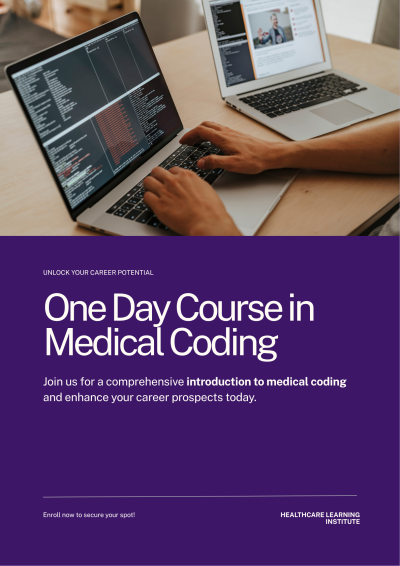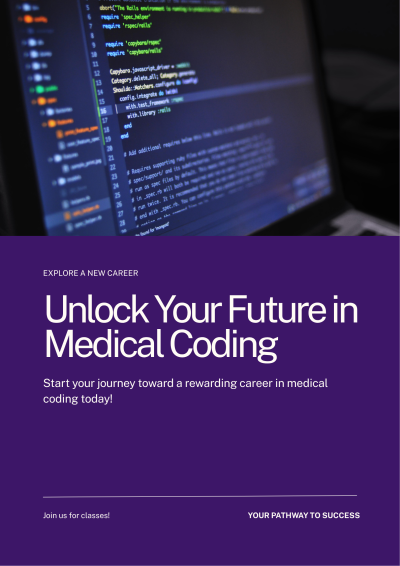Course description
Overview of Medical Coding
Medical coding is a vital component of the healthcare system that involves translating medical diagnoses, procedures, treatments, and services into standardized alphanumeric codes. This process ensures proper documentation, billing, and reporting, making it essential for the financial health of healthcare organizations and the integrity of patient records. This comprehensive overview will cover the fundamentals of medical coding, its importance, key coding systems, processes, and current trends.
1. Understanding Medical Coding
Definition and Importance
Medical coding involves assigning specific codes to healthcare services and procedures based on the information recorded in patient medical records. This coding is crucial for various reasons:
- Billing and Reimbursement: Accurate coding ensures healthcare providers receive appropriate payment from insurance companies and government programs.
- Data Collection: Coding facilitates the collection of health data for research, public health monitoring, and quality improvement initiatives.
- Legal Documentation: Provides an official record of patient care that can be used in legal contexts.
2. Key Coding Systems
Several coding systems are commonly used in medical coding:
a. ICD-10 (International Classification of Diseases, 10th Revision)
- Used for coding diagnoses and health conditions.
- Provides a comprehensive set of codes that reflect various diseases and health issues.
b. CPT (Current Procedural Terminology)
- Used for coding medical procedures and services.
- Maintained by the American Medical Association (AMA), it includes codes for outpatient and inpatient services.
c. HCPCS (Healthcare Common Procedure Coding System)
- Comprises two levels: Level I codes (CPT) and Level II codes, which include non-physician services, such as ambulance rides and durable medical equipment.
3. The Medical Coding Process
a. Reviewing Patient Records
- Coders examine the documentation provided by healthcare providers, including clinical notes, lab results, and imaging reports.
b. Assigning Codes
- Using coding manuals and software, coders assign the appropriate codes based on the documented diagnoses and procedures.
c. Ensuring Accuracy
- Coders verify that the assigned codes accurately reflect the services rendered, adhering to coding guidelines and regulations.
d. Submitting Claims
- Once codes are assigned, coders prepare and submit claims to insurance companies for reimbursement.
4. Roles and Responsibilities in Medical Coding
a. Medical Coder
- Responsible for reviewing patient records, assigning codes, and ensuring accuracy in documentation and billing.
b. Coding Auditor
- Reviews coding practices for compliance and accuracy, providing feedback and education to coders.
c. Coding Manager
- Oversees coding operations, manages staff, and ensures adherence to coding standards and regulations.
5. Current Trends in Medical Coding
a. Increased Use of Technology
- Implementation of electronic health records (EHR) and coding software to streamline the coding process.
b. Telehealth and Remote Coding
- Growth of telehealth services has led to new coding challenges and the need for updated coding practices.
c. Value-Based Care
- Shift towards value-based reimbursement models requires more detailed coding to reflect quality and outcomes of care.
6.Challenges in Medical Coding
- Complex Regulations: Navigating the ever-changing coding guidelines and regulations can be challenging.
- High Demand for Accuracy: Errors in coding can lead to claim denials, revenue loss, or legal issues.
- Continuous Education: Coders must stay updated with ongoing training and certification to remain compliant and knowledgeable
Conclusion
Medical coding is an integral part of the healthcare system that ensures accurate documentation and reimbursement for services rendered. As the healthcare landscape continues to evolve with technology and new care models, medical coders must adapt and enhance their skills to meet the demands of the industry. Through their expertise, coders play a crucial role in maintaining the efficiency and integrity of healthcare operations, ultimately contributing to improved patient care and organizational success.
Why Enroll?
Networking Opportunities: Connect with industry professionals and peers.
Resource Materials: Access exclusive readings and materials.
Certificate of Completion: Enhance your resume with a recognized credential.
Q&A Session: Engage directly with experienced practitioners.
FollowUp Support: Discover further learning and career opportunities in the field.
7. Get access 650+ HR's email ID's hiring
How to Enroll:
To secure your spot, please reply to this email or click https://www.mercurymentors.com/home/course/one-day-course-for-pharmacovigilance/30 Spaces are limited, so don’t delay!



















